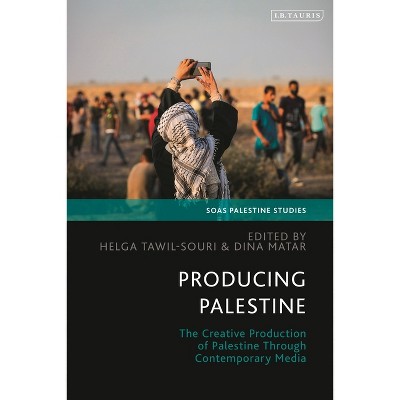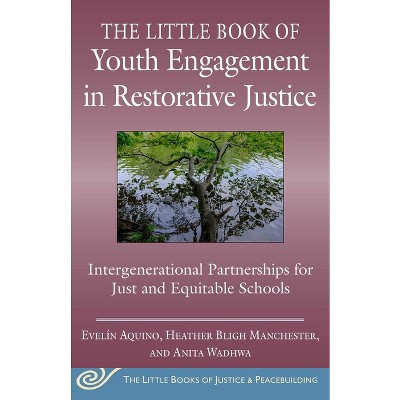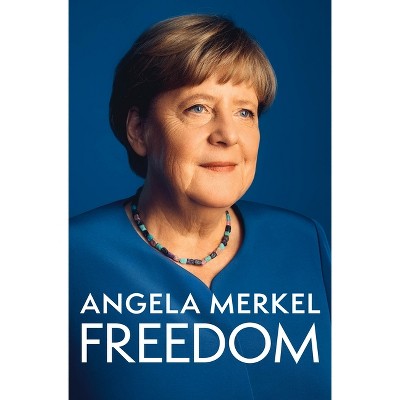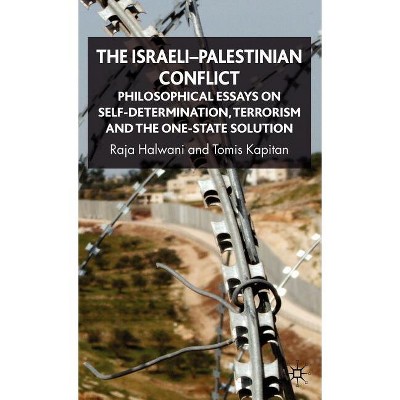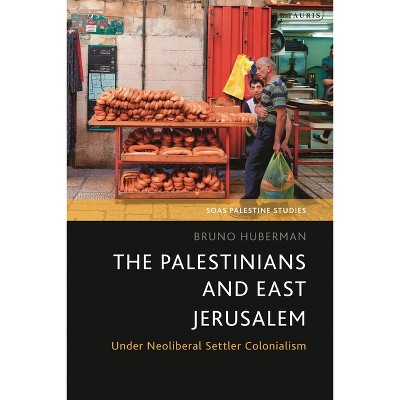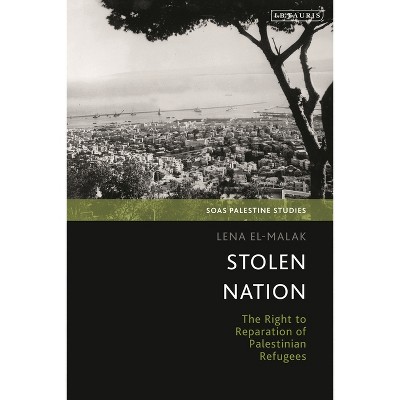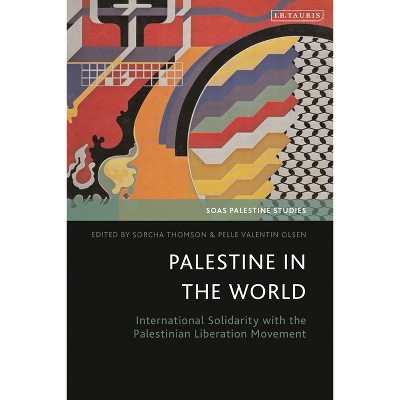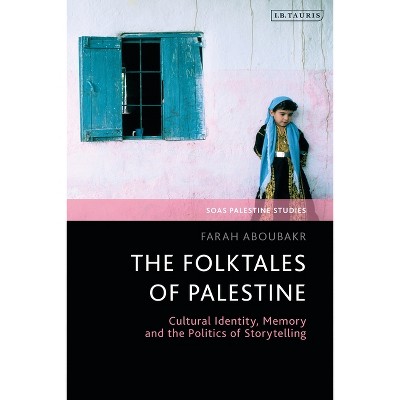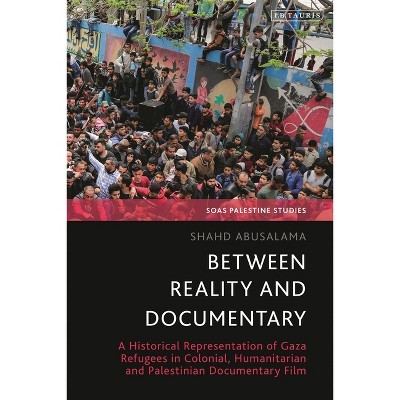Sponsored

Palestinians in Israel after the Arab Spring - (Soas Palestine Studies) by Yusri Hazran Khaizran & Muhammad Khalaily (Hardcover)
$115.99
In Stock
Eligible for registries and wish lists
Sponsored
About this item
Highlights
- The Arab Spring initially ignited excitement for Arab society in Israel.
- About the Author: Yusri Hazran Khaizran is Senior Lecturer in the Department of Middle Eastern and Islamic Studies at Shalem College, Israel.
- 270 Pages
- Political Science, World
- Series Name: Soas Palestine Studies
Description
About the Book
"This book demonstrates why the Arab Spring, and especially events in Syria, provoked such deep fragmentation for Palestinians in Israel. It is based on the findings of governmental and public surveys. It shows that Arab-Palestinian citizens were divided on the idea of integration with Israeli politics following the Arab Spring, while the younger generations wanted to search for alternatives to replace the existing political frameworks completely. The book covers the new policies adopted by the central government in Israel that have been formed since 2011 to strengthen civic discourse amongst Arab citizens"--Book Synopsis
The Arab Spring initially ignited excitement for Arab society in Israel. But following the outbreak of the uprising in Syria, Israeli-Arab attitudes shifted. This book demonstrates why the Arab Spring, and especially the war in Syria, provoked such deep fragmentation for Palestinians in Israel. Based on governmental and public surveys, the book shows that many more Arab-Palestinian citizens became supportive of instrumental integration with Israeli politics following the Arab Spring. But the momentous events convinced other Arab citizens to abandon the connection between finding a solution for the Palestinian problem if it involved integration with the state. At the same time, this book reveals that the younger generations wanted to search for alternatives to replace the existing political frameworks completely and were inspired to form a new model of political activism. This is the first study to explore how the Arab Spring affected Arab society in Israel in terms of identity, political discourse and behaviour. In doing so it covers the new policy adopted by the central government in Israel, formed after 2011 to strengthen civic discourse amongst Arab citizens. It has been neither Israelization nor Zionization; but Instrumental integration which meets the conditional citizenship offered by the state.Review Quotes
A welcome, useful and edifying reminder that Palestinians holders of Israeli citizenship are not insulated from the political trends that affect the Arab world. They are also "forgotten Arabs" who vibrate along with the events that shake their Arab environment and who share common societal and political features with it.
Gilbert Achcar, Professor, SOAS, University of London, author of The People Want: A Radical exploration of the Arab Uprising
The book is important for understanding the events of the Arab world itself, the situation in Israel in the broader context of the Middle East and of course for relations with the Palestinians, including the Arab citizens of Israel, and of course it is very much about the internal politics of the Arab minority, thus it also contributes to understanding the specific case of the Arab minority in Israel. There is no doubt that the book and the chapters relating to its subject matter are of first-class importance and that the entire book makes a very important contribution to the political and social context and culture as well as to the scientific understanding of an important issue.
About the Author
Yusri Hazran Khaizran is Senior Lecturer in the Department of Middle Eastern and Islamic Studies at Shalem College, Israel. He is also Research Fellow at the Harry S. Truman Institute for the Advancement of Peace, Hebrew University, Israel. He was awarded a Fulbright Fellowship at Harvard University, US, and received his PhD from the Hebrew University, Israel. He is the author of The Druze Community and the Lebanese State: Between Resistance and Reconciliation (2014). His main expertise is the social and political history of the Fertile Crescent.
Muhammad Khalaily is Lecturer in the Department of Political Science at Haifa University, Israel, and Visiting Scholar at the Advancement of Peace at the Department of Development Studies and International Relations, SOAS, University of London, UK. He received his Ph.D. from Haifa University, Israel.Dimensions (Overall): 9.21 Inches (H) x 6.14 Inches (W) x .63 Inches (D)
Weight: 1.22 Pounds
Suggested Age: 22 Years and Up
Number of Pages: 270
Genre: Political Science
Sub-Genre: World
Series Title: Soas Palestine Studies
Publisher: I. B. Tauris & Company
Theme: Middle Eastern
Format: Hardcover
Author: Yusri Hazran Khaizran & Muhammad Khalaily
Language: English
Street Date: May 29, 2025
TCIN: 1004456925
UPC: 9780755654413
Item Number (DPCI): 247-34-8110
Origin: Made in the USA or Imported
If the item details aren’t accurate or complete, we want to know about it.
Shipping details
Estimated ship dimensions: 0.63 inches length x 6.14 inches width x 9.21 inches height
Estimated ship weight: 1.22 pounds
We regret that this item cannot be shipped to PO Boxes.
This item cannot be shipped to the following locations: American Samoa (see also separate entry under AS), Guam (see also separate entry under GU), Northern Mariana Islands, Puerto Rico (see also separate entry under PR), United States Minor Outlying Islands, Virgin Islands, U.S., APO/FPO
Return details
This item can be returned to any Target store or Target.com.
This item must be returned within 90 days of the date it was purchased in store, shipped, delivered by a Shipt shopper, or made ready for pickup.
See the return policy for complete information.
Frequently bought together
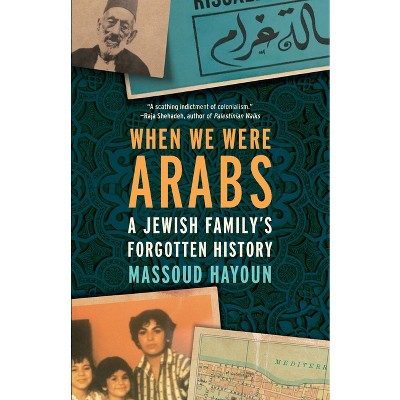
$16.57 - $18.59
MSRP $18.99 - $27.99
Buy 2, get 1 free select books, music & movies
5 out of 5 stars with 1 ratings

$18.88
MSRP $27.00
Buy 2, get 1 free select books, music & movies
4.8 out of 5 stars with 571 ratings
Trending Non-Fiction


$19.31
was $20.98 New lower price
Buy 2, get 1 free select books, music & movies
4 out of 5 stars with 59 ratings

$19.58
MSRP $29.00
Buy 2, get 1 free select books, music & movies
4.6 out of 5 stars with 13 ratings

$4.59
MSRP $7.99
Buy 2, get 1 free select books, music & movies
4.8 out of 5 stars with 120 ratings

$6.20
MSRP $10.95
Buy 2, get 1 free select books, music & movies
4.8 out of 5 stars with 33 ratings

$7.09
MSRP $9.99
Buy 2, get 1 free select books, music & movies
4.9 out of 5 stars with 46 ratings
